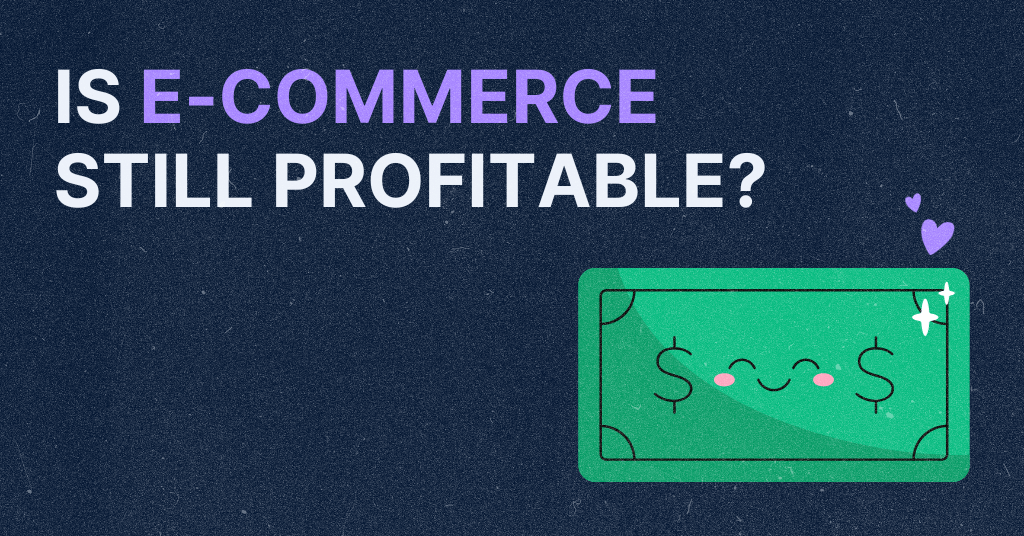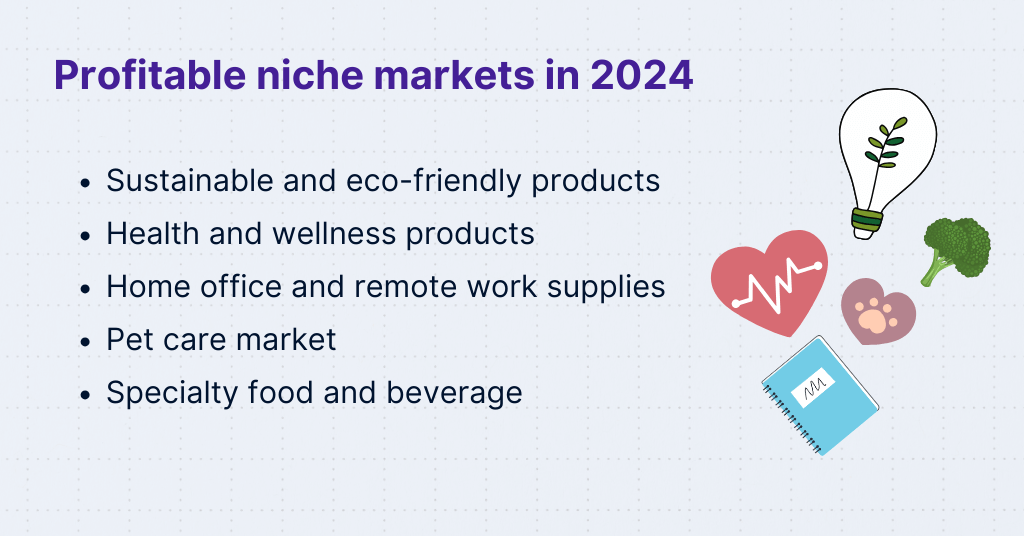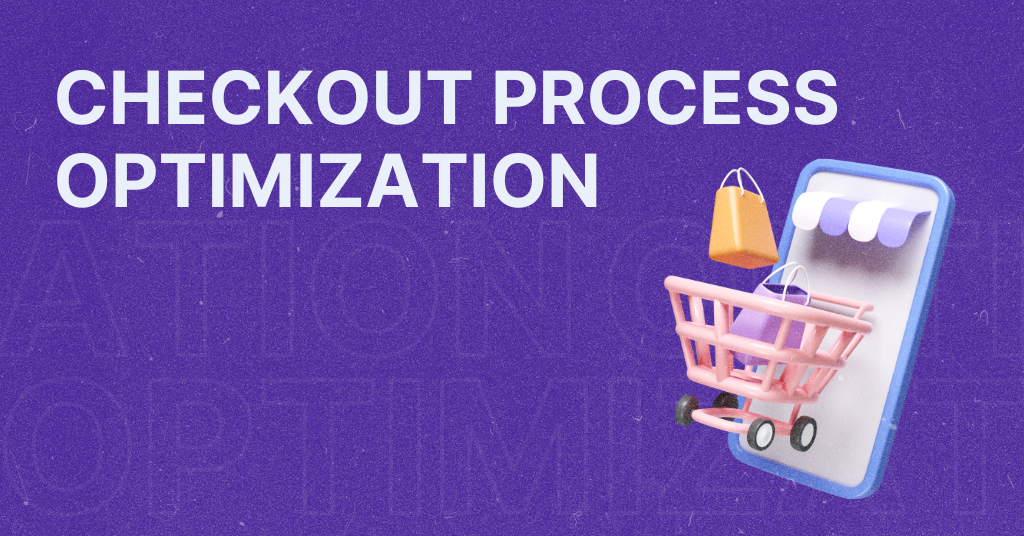
Is e-commerce still profitable – 2024
As we step into 2024, e-commerce still grows. With this speed in mind, many entrepreneurs and business owners are asking a critical question: Is e-commerce still profitable? Let’s dissect current trends, challenges, and opportunities to determine the viability of e-commerce in today’s market.
Where’s e-commerce in 2024?
In 2024, consumers continue to prefer the convenience of shopping on their smartphones, leading businesses to optimize their online stores for mobile users. This shift is about accessibility and providing a shopping experience tailored to each user.
Online stores are now using sophisticated algorithms to analyze customer behavior, preferences, and past purchases, offering personalized product recommendations and custom-tailored deals.
The integration of Augmented Reality (AR) is another groundbreaking development. AR technology allows customers to visualize products in their own space or see what a piece of clothing might look like on them before making a purchase, bridging the gap between the physical and digital shopping experiences.
But, the journey hasn’t been without its challenges.
The e-commerce is also shaped by ongoing supply chain disruptions that began in previous years. These disruptions have forced businesses to rethink and restructure their supply chains, emphasizing resilience and flexibility.
There has been a noticeable shift in consumer spending patterns. The economic landscape has led consumers to be more cautious and value-conscious in their spending. This shift has prompted e-commerce businesses to adjust their strategies and focus on transparent communication about product sourcing and sustainability.
- What are the advantages of mobile commerce?
- Mobile app accessibility for better user experience
- Responsive web vs native app for e-commerce
- Selecting the best ecommerce platform for beginners
- 10 features for your mobile ecommerce website
E-commerce advantages
One of the key advantages is the shift away from physical storefronts. By going digital, businesses can cut down on the hefty costs of rent, upkeep, and utilities that come with a traditional brick-and-mortar presence. This change is especially beneficial for small and medium businesses, allowing them to invest more in product quality, customer service, and marketing efforts.
Another major plus of e-commerce is its ability to break down geographic boundaries. With an online store, businesses are no longer limited to local customers. Instead, they have the entire world as their potential market. This global reach is particularly valuable for businesses offering niche products or services that might have a limited local audience.
Social media platforms offer targeted advertising options, letting businesses reach specific groups of people based on their interests, demographics, and online behavior. These platforms aren’t just about selling; they’re also great for building relationships with customers, getting instant feedback, and creating a community feel around a brand. Digital marketing provides a cost-effective way to increase brand visibility, attract new customers, and keep existing ones coming back.

E-commerce challenges
The rapid growth of the e-commerce market created a highly competitive environment. With so many online stores fighting for attention, distinguishing your brand has become more challenging than ever.
To stand out, it’s not enough to just have good products or competitive prices. Brands could offer exclusive products, engage customers with a compelling brand story, or provide an exceptional online experience. Creative marketing, focusing on customer engagement, and tapping into niche markets are also key strategies for making your brand memorable.
On top of the competition, e-commerce businesses today face increasingly high customer expectations. Modern consumers expect a fast, seamless, and personalized shopping experience. Quick shipping, often within a couple of days, is a must.
Customer service needs to be top-notch – responsive, helpful, and available across multiple channels. Personalization is another area where expectations have risen. Customers appreciate a shopping experience that caters to their individual preferences, whether it’s product recommendations, tailored deals, or a website layout that adapts to their browsing habits.
To keep up and stay profitable, e-commerce businesses must be adaptable and customer-focused. This means investing in efficient logistics for faster shipping, using customer relationship management tools to enhance service, and employing data analytics to personalize the shopping experience. Read more about e-commerce challenges here.
Key factors for e-commerce profitability
1. Choosing the right niche
A well-defined niche helps you target a specific customer base with precise needs and preferences, reducing competition and increasing the effectiveness of your marketing efforts. It allows you to focus your product development, branding, and customer service to meet the unique demands of your target audience. By specializing in a particular area, you can establish your brand as an expert or go-to source in that field, fostering customer loyalty and trust.
Examples of niche markets that have shown profitability in 2024
- Sustainable and eco-friendly products. With increased environmental awareness, products like biodegradable goods and sustainable fashion have seen growing demand.
- Health and wellness products. This sector thrives with items such as nutritional supplements, organic health foods, and fitness equipment, catering to a health-conscious consumer base.
- Home office and remote work supplies. As remote work becomes more mainstream, products like ergonomic furniture and productivity tech gadgets have become increasingly popular.
- Pet care market. Beyond basic needs, this market has expanded to include premium pet foods, health supplements, and innovative pet technology.
- Specialty food and beverage. Catering to specific dietary preferences such as keto, vegan, and gluten-free, this niche includes specialty ingredients and ready-to-eat meals.

2. Effective marketing strategies
Good marketing drives customer engagement and conversions. It involves understanding your target audience, communicating the unique value of your products, and building a relationship with your customers.
With the right marketing strategies, such as targeted social media campaigns, email marketing, and search engine optimization (SEO), e-commerce businesses can reach a larger audience, personalize their marketing messages, and create a loyal customer base.
3. Technology in mind
Advanced tech tools like AI, machine learning, and data analytics optimize various aspects of the business, from inventory management to personalized customer interactions. This integration leads to more efficient processes, reduced errors, and a better understanding of customer preferences, which in turn improves the shopping experience and boosts customer satisfaction.
Equally important is ensuring a mobile-friendly platform. With the increasing prevalence of smartphones, a significant portion of online shopping is done via mobile devices. A mobile-friendly e-commerce platform is about creating an intuitive, and engaging shopping experience on a smaller screen. This includes easy navigation, fast loading times, and a secure checkout process. Getting a mobile app and having your store optimized for mobile devices will ensure your customers are satisfied.
You want to reach more customers on mobile? OmniShop mobile app is fully optimized for mobile devices.
E-commerce market forecasts – 2024
In 2024, key market forecasts for the e-commerce sector highlight several trends.
Mobile commerce growth. A significant surge in mobile commerce is expected, as more consumers prefer shopping on their smartphones. Businesses focusing on mobile optimization are likely to see substantial gains.
Social commerce. Social media platforms are increasingly becoming a major sales channel for e-commerce, with integrations for direct purchases expected to expand.
AI-driven personalization. AI and machine learning technologies are predicted to elevate the level of personalization in e-commerce, offering more tailored shopping experiences and recommendations.
Sustainability. Growing consumer demand for sustainability is pushing e-commerce businesses towards eco-friendly products and practices, significantly influencing buyer decisions.
Delivery and logistics advancements. Innovations in logistics, including drone deliveries and automated systems, are anticipated to streamline e-commerce operations, improving delivery speed and efficiency.
So, is e-commerce still profitable?
While e-commerce in 2024 faces its unique set of challenges, it remains a highly profitable venture for those who adapt to the changing landscape. The key lies in understanding market trends, leveraging technology, and focusing on customer-centric strategies. As the digital marketplace evolves, so do the opportunities for innovative and agile e-commerce businesses.
Keep up with trends and think about getting a mobile app for your online store. ✨
Let’s book a 30-min mobile strategy session and give your shop a boost.
Let’s book a 30-min mobile strategy session and give your shop a boost.


